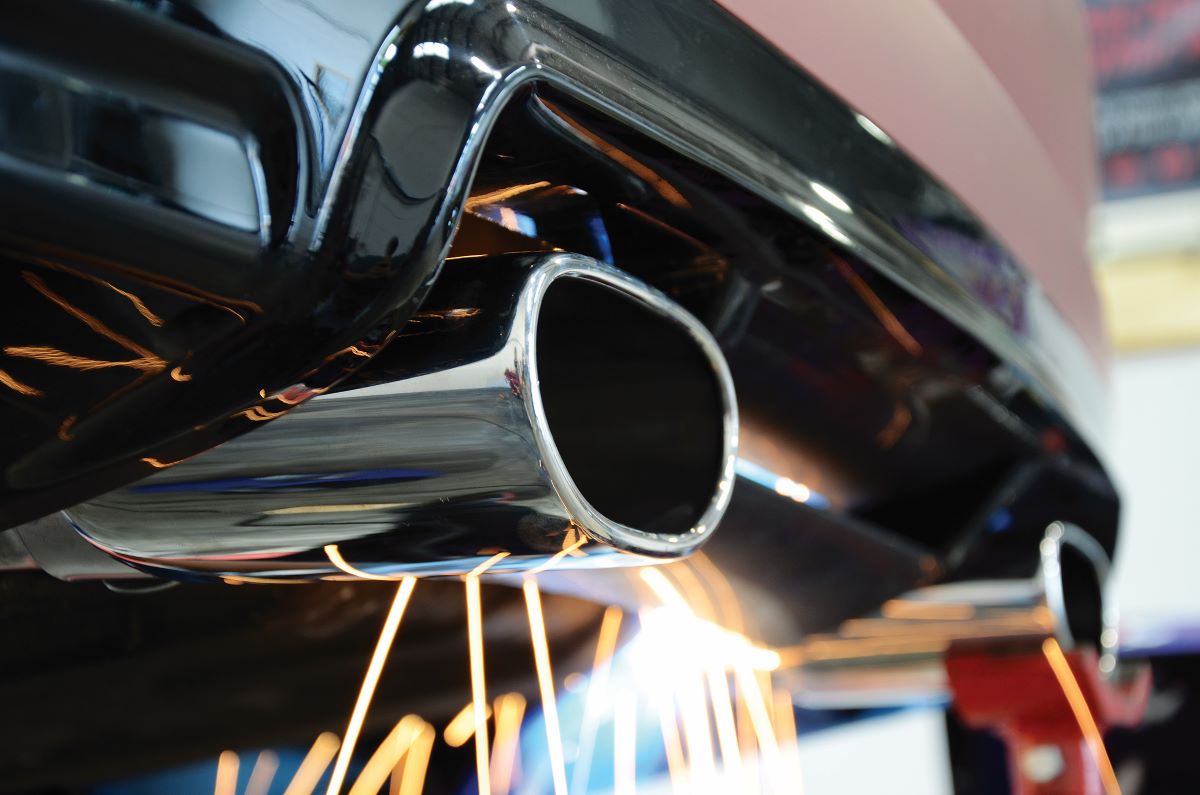
Ever wondered what makes your car roar or purr? The exhaust system plays a huge role in your vehicle's performance, sound, and even its environmental impact. From mufflers to catalytic converters, each part has a specific job. But how much do you really know about exhausts? Whether you're a car enthusiast or just curious, understanding these components can be both fun and useful. In this post, we'll dive into 32 fascinating facts about exhausts that will rev up your knowledge. Ready to shift gears and learn more? Buckle up and let's get started!
What Are Exhausts?
Exhaust systems are crucial for vehicles. They help manage emissions, improve performance, and reduce noise. Here are some fascinating facts about exhausts.
-
Exhaust systems reduce harmful emissions. They convert toxic gases like carbon monoxide into less harmful substances.
-
Catalytic converters are key components. These devices use chemical reactions to clean exhaust gases.
-
Mufflers reduce noise. They contain chambers and tubes that cancel out sound waves.
-
Exhausts improve engine performance. By removing gases efficiently, they help engines run smoothly.
-
They can affect fuel efficiency. A well-maintained exhaust system can improve gas mileage.
Types of Exhaust Systems
Different vehicles use various exhaust systems. Each type has unique features and benefits.
-
Single exit exhausts are common. Most cars have one pipe for exhaust gases to exit.
-
Dual exit exhausts offer better performance. They have two pipes, reducing back pressure.
-
Opposite dual exhausts are stylish. Pipes exit on opposite sides of the vehicle, giving a sporty look.
-
Dual side exhausts are practical. Both pipes exit on the same side, often used in trucks.
-
High-performance exhausts boost power. These systems are designed for racing and high-speed driving.
Materials Used in Exhaust Systems
Exhaust systems are made from various materials. Each material has its advantages and disadvantages.
-
Stainless steel is durable. It resists rust and lasts longer than other materials.
-
Aluminized steel is cost-effective. It offers decent rust resistance at a lower price.
-
Mild steel is affordable. However, it rusts quickly and needs frequent replacement.
-
Titanium is lightweight. It’s used in high-performance vehicles for its strength and low weight.
-
Ceramic coatings protect exhausts. They reduce heat and prevent rust.
Innovations in Exhaust Technology
Modern exhaust systems have advanced features. These innovations improve efficiency and reduce environmental impact.
-
Variable valve timing optimizes performance. It adjusts exhaust flow based on engine speed.
-
Active exhaust systems change sound. Drivers can switch between quiet and loud modes.
-
Exhaust gas recirculation reduces emissions. It recycles some exhaust gases back into the engine.
-
Selective catalytic reduction cuts nitrogen oxides. This technology is used in diesel engines.
-
Particulate filters trap soot. They are essential for reducing diesel emissions.
Maintenance and Care
Proper maintenance keeps exhaust systems functioning well. Regular checks can prevent costly repairs.
-
Inspect for leaks regularly. Exhaust leaks can be dangerous and reduce performance.
-
Check the catalytic converter. A failing converter can cause poor engine performance.
-
Listen for unusual noises. Rattling or hissing sounds may indicate problems.
-
Look for rust and corrosion. These can weaken the exhaust system.
-
Ensure proper alignment. Misaligned exhausts can cause vibrations and noise.
Fun Facts About Exhausts
Exhaust systems have some surprising and fun aspects. Here are a few interesting tidbits.
-
Some cars have fake exhaust tips. They are purely for aesthetics and don’t function.
-
Exhaust flames are real. High-performance cars can shoot flames from their exhausts.
-
Motorcycles have unique exhaust sounds. Each brand has a distinctive exhaust note.
-
Exhaust systems can be customized. Car enthusiasts often modify exhausts for better sound and performance.
-
Electric cars don’t need exhausts. They produce no emissions, so exhaust systems are unnecessary.
-
Exhaust wraps reduce heat. Wrapping exhaust pipes can lower engine bay temperatures.
-
Exhaust systems can be art. Some custom exhausts are designed to look visually stunning.
Final Thoughts on Exhausts
Exhaust systems play a crucial role in vehicle performance and environmental impact. They help reduce noise, improve fuel efficiency, and minimize harmful emissions. Understanding the different types of exhausts, like cat-back, axle-back, and headers, can help you make informed decisions about upgrades or replacements. Regular maintenance, such as checking for leaks and ensuring proper installation, keeps your exhaust system running smoothly.
Remember, a well-maintained exhaust not only enhances your car's performance but also contributes to a cleaner environment. Whether you're a car enthusiast or just someone looking to keep their vehicle in top shape, knowing these facts about exhausts can make a big difference. So next time you hear that rumble or notice a drop in fuel efficiency, you'll know exactly where to look. Happy driving!
Was this page helpful?
Our commitment to delivering trustworthy and engaging content is at the heart of what we do. Each fact on our site is contributed by real users like you, bringing a wealth of diverse insights and information. To ensure the highest standards of accuracy and reliability, our dedicated editors meticulously review each submission. This process guarantees that the facts we share are not only fascinating but also credible. Trust in our commitment to quality and authenticity as you explore and learn with us.
